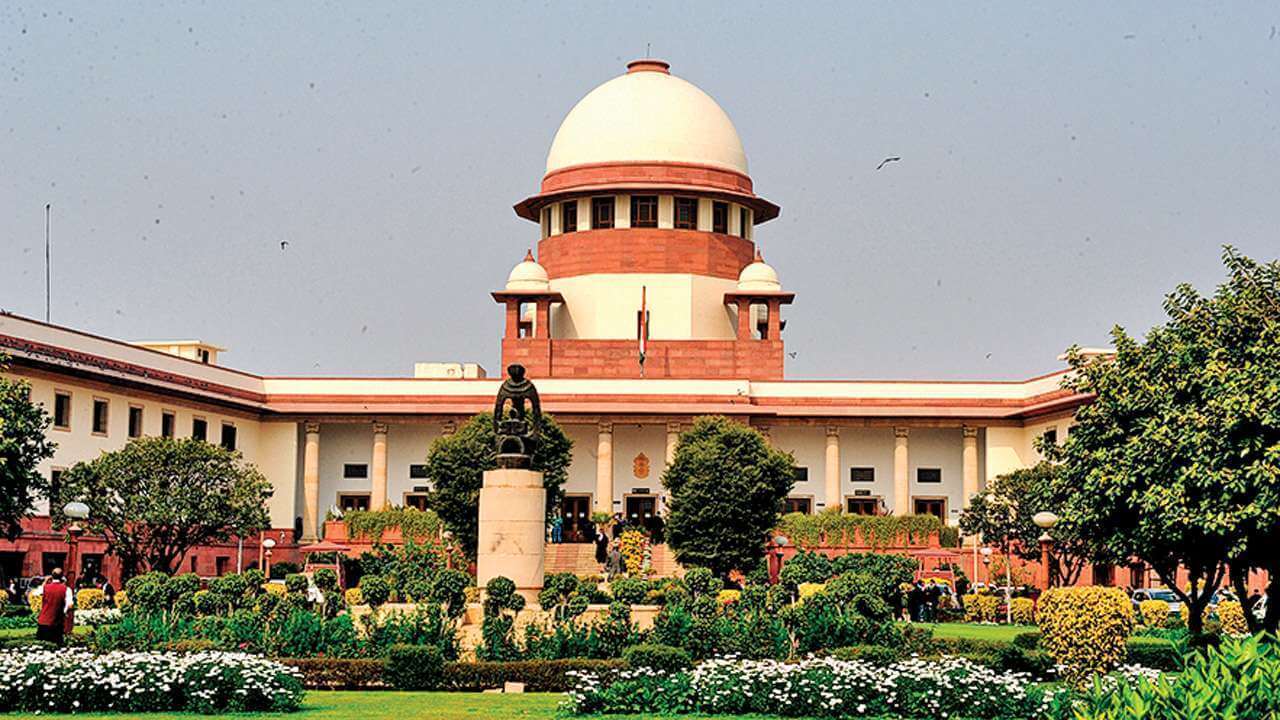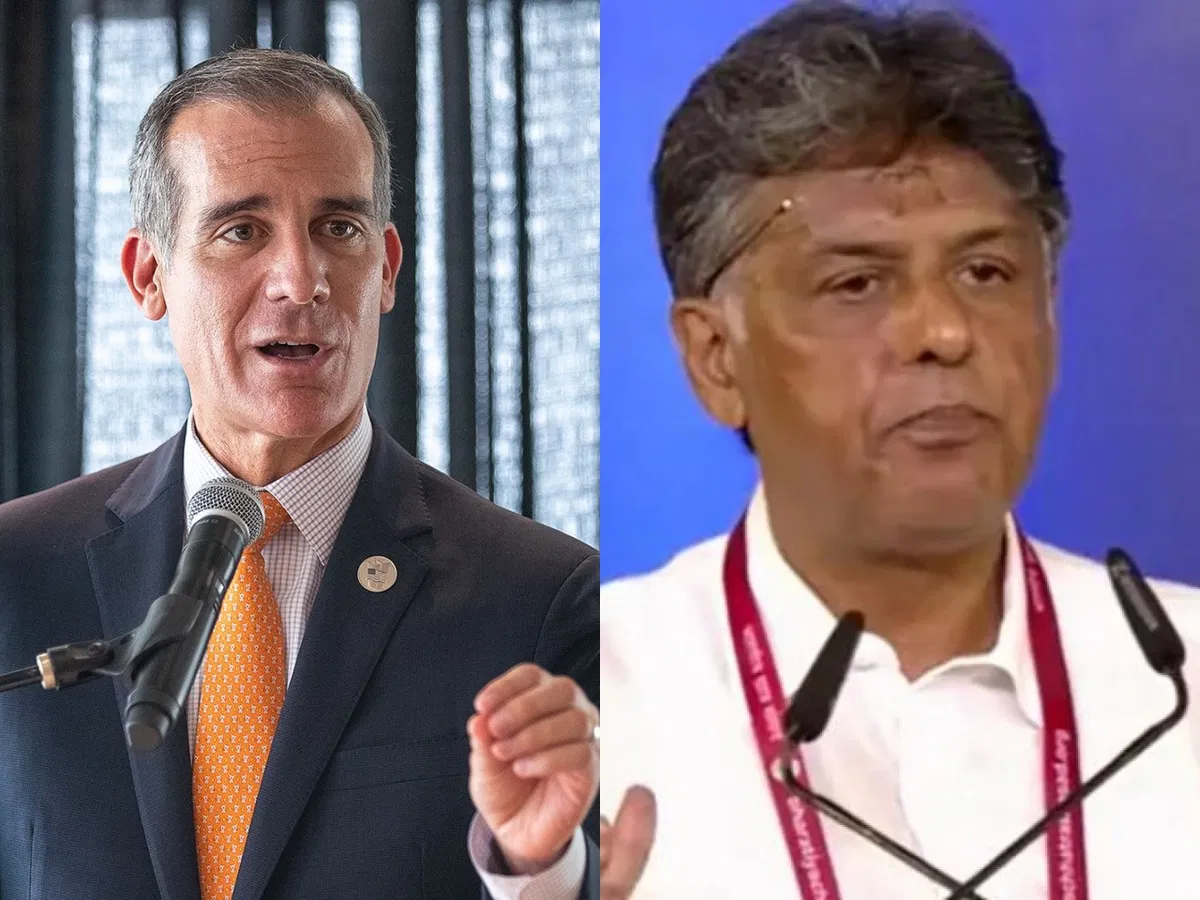The Centre issued an ordinance restoring to itself the power over ‘services’ in the on Friday evening, a week after the Supreme Court ruled that the Delhi government has control over bureaucrats assigned to departments under its purview

AAP to Challenge Centre’s Unconstitutional Ordinance in Supreme Court, Asserts Delhi Government
Battle lines drawn: Delhi Government prepares to confront Centre’s ordinance in the Supreme Court, ready for a long legal battle.
The Aam Aadmi Party (AAP) has strongly condemned the recent ordinance issued by the Centre, which restores power over “services” in the National Capital Territory (NCT) to the central government. Terming the ordinance as unconstitutional, the AAP announced its intention to challenge it in the Supreme Court.
The Centre’s ordinance comes in the wake of a Supreme Court ruling that affirmed the control of bureaucrats assigned to departments under the purview of the Delhi government. The ordinance, issued on Friday evening, introduces a new chapter in the government of the NCT of Delhi Act, creating a National Capital Civil Service Authority (NCCSA) and a Public Service Commission for officer transfers and postings. It also strengthens the authority of the lieutenant governor (LG) in decision-making related to bureaucrats.
At a press conference, Delhi’s education minister Atishi criticized the ordinance, stating that it aimed to undermine democracy and the constitution. She expressed confidence that the Supreme Court would ultimately strike down the ordinance. AAP Rajya Sabha MP Sanjay Singh confirmed that the Delhi government would challenge the ordinance in the Supreme Court.
Atishi highlighted the timing of the ordinance, suggesting that it was strategically introduced during the Supreme Court’s summer vacation. She argued that this tactic was aimed at obstructing the work of the Delhi government for the duration of the vacation, using an unconstitutional ordinance as a tool.

The ordinance, in Atishi’s view, infringes upon the powers of the elected Delhi government over transfers and postings, as established by a Supreme Court constitution bench in 2015. The bench recognized the authority of the elected government to oversee services, emphasizing the principles of democracy and the government’s accountability to the people. Atishi contended that the ordinance was a response to the perceived threat of Chief Minister Arvind Kejriwal’s effective governance.
According to the ordinance, the Delhi Assembly does not have the authority to legislate on service matters, which Atishi deemed unconstitutional. The NCCSA, chaired by the Chief Minister, would include the chief secretary and home secretary of Delhi as members. However, these two positions would be appointed by the central government rather than the Delhi government, undermining the CM’s decision-making ability. The ordinance also stipulates that decisions of the authority will require a majority, meaning that decisions will align with the preferences of the two bureaucrats appointed by the central government. Additionally, the LG retains the power to overturn the authority’s decisions, further limiting the elected government’s control over transfers and postings.
Atishi criticized the central government’s actions, highlighting that Delhi already has limited powers as it does not control land, police, or public order. She argued that the unconstitutional measures were an attempt to curtail the already restricted authority of the Delhi government. Atishi maintained that the Centre’s actions were driven by fear of Kejriwal’s potential to demonstrate the strength and integrity of an honest government.
In response, Bharatiya Janata Party (BJP) spokesperson Harish Khurana defended the Centre’s decision, accusing Arvind Kejriwal of corruption and harassment of officers. Khurana alleged that officers who impeded Kejriwal’s actions were subjected to intimidation and threats, highlighting incidents of alleged misconduct within the Delhi government.
As the Delhi government prepares to challenge the ordinance in the Supreme Court, the issue of power dynamics between the Centre and the elected Delhi government continues to spark heated debates. The legal battle will determine the extent of the Delhi government’s authority and its ability to govern effectively within the existing constitutional framework.
The AAP’s Efforts to Safeguard Delhi’s Autonomy: Challenging the Centre’s Unconstitutional Ordinance
In a resolute response to the Centre’s recent ordinance, the Aam Aadmi Party (AAP) has emerged as a vocal defender of Delhi’s autonomy. The ordinance, which restores power over “services” in the National Capital Territory (NCT) to the central government, has been strongly criticized by the AAP for its unconstitutional nature. The party has affirmed its determination to challenge the ordinance in the Supreme Court, asserting the rights of the Delhi government.
The Centre’s decision to issue the ordinance comes in the wake of a significant Supreme Court ruling, which upheld the authority of the Delhi government over bureaucrats assigned to departments under its purview. However, the ordinance, introduced on a Friday evening, introduces a new chapter in the government of the NCT of Delhi Act. This chapter establishes the National Capital Civil Service Authority (NCCSA) and a Public Service Commission, which will be responsible for officer transfers and postings. Additionally, the ordinance reinforces the role of the lieutenant governor (LG), granting them the ultimate authority to make decisions regarding bureaucrats.
During a press conference, Delhi’s education minister, Atishi, vehemently criticized the ordinance, labeling it an assault on democracy and the constitution. She expressed confidence that the Supreme Court would ultimately strike it down. AAP Rajya Sabha MP Sanjay Singh echoed Atishi’s sentiments, emphasizing that the Delhi government would contest the ordinance in the highest court of the land.
Atishi highlighted the timing of the ordinance’s introduction, pointing out that it coincided with the commencement of the Supreme Court’s summer vacation. This strategic move by the Centre, according to Atishi, was intended to disrupt the functioning of the Delhi government during the vacation period, using an unconstitutional ordinance as a means to achieve this end.
In Atishi’s view, the ordinance infringes upon the powers vested in the elected Delhi government, powers that were previously confirmed by a Supreme Court constitution bench ruling in 2015. The bench explicitly recognized the authority of the elected government to oversee services, emphasizing the principles of democracy and the government’s accountability to the people. Atishi argued that the ordinance was a direct response to the perceived threat posed by Chief Minister Arvind Kejriwal’s effective governance.
According to the provisions outlined in the ordinance, the Delhi Assembly is stripped of its authority to legislate on service matters. Atishi considered this provision to be a blatant violation of the constitution. The NCCSA, which is intended to be chaired by the Chief Minister, would include the chief secretary and home secretary of Delhi as members. However, the appointment of these two positions would fall under the purview of the central government, thereby undermining the decision-making power of the Chief Minister. The ordinance also stipulates that decisions made by the authority require a majority vote, effectively aligning decisions with the preferences of the two bureaucrats appointed by the central government. Moreover, the LG retains the power to overturn the authority’s decisions, further curtailing the elected government’s control over officer transfers and postings.
Atishi strongly criticized the central government’s actions, emphasizing that Delhi already has limited powers as it does not control land, police, or public order. She argued that the unconstitutional measures were implemented in an attempt to further constrain the already restricted authority of the Delhi government. Atishi maintained that these actions were driven by the Centre’s fear of Kejriwal’s potential to demonstrate the strength and integrity of an honest government.
Delhi Government’s defiance: AAP takes the fight against Centre’s ordinance to the Supreme Court.
In response, Bharatiya Janata Party (BJP) spokesperson Harish Khurana came to the defence of the Centre’s decision, accusing Arvind Kejriwal of corruption and harassment of officers. Khurana alleged that officers who obstructed Kejriwal’s.


















